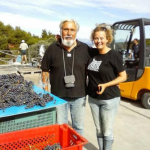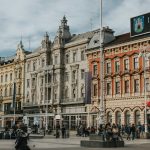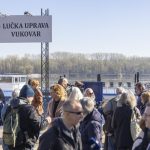February 7, 2020 – Lauba in Zagreb hosted the third edition of the Digital (R)evolution conference (Digitalna (R)evolucija), with over 600 strategists and creators of digital economy attending.
Croatian Employers Association (HUP) and their ICT section organized the conference. Darko Horvat, Croatian Minister of Economy, supported the conference by attending. Gordana Deranja, HUP President, said at the opening that it’s important to remember that the digital transformation is just partially connected to the new technology. In the full sense, the term means changing the way of work, a different approach, and a different mindset. That requires a lot of work and is more demanding, as we change the way we behave, on all levels. Additionally, digitalization is not a one-off – it’s a continuity of change, something that we’re very reluctant to do in this region. However, the times we live in demand that we be ready for change every day.
The topic of the conference arose from the latest IMD survey on digital competitiveness, in which Croatia fell on the list by as much as seven spots, exclusively because of the “low level of preparedness for the future.” To be digitally competitive, it’s imperative to fully perform the digital transformation, with smooth cooperation between the public and the private sectors, and with the support from the government. Darko Horvat, a minister in the government, announced that the national plan for a digital economy will be presented soon and that it will include clear measures for the fast implementation and development of digital solutions in Croatia.
Dejan Ljuština, a partner in PwC Croatia, an expert in the field, pointed out the large gap between the companies who are aware and actively participate in the digital revolution in 2020, and those who don’t even consider that. He added that the artificial intelligence would result in a technological shift in almost all industries, destroying and creating jobs, making the workforce go through changes, but at the same time increasing the incomes of the companies that use it.
The working motto of the conference was “Talents, Agility, Technology”, which spells out quite clearly the importance of those components for the implementation of the digital transformation. However, the next step, crucial for Croatia, is the investment. Boris Drilo, the president of the HUP-ICT Association, said that digitalization requires investment, and the financial means needed to implement the new technologies need to be found. For Croatia, at this moment, the critical thing is to prepare well for the next period of the EU funds, 2021-2027. That is the opportunity that can’t be missed – because if that happens, the Croatian economy might be ruined for the next 10 or 15 years.
Nine excellent companies showed how digital transformation is possible in Croatia. Bagatin Clinic showed how to use the AI for x-rays, but also their internal processes, which companies from various industries can use. Njuškalo showed how they use the recognition software for the photos. Tokić Autodijelovi and Neostar presented their business models to show how it can affect the auto industry. Polidor Camp and Bluesun Hotels showed that digital transformation is happening in tourism as well. Klimaoprema presented the examples from their everyday work, showing how digital transformation influenced internal and external processes. Iverpan Company used Ascalia to digitize its operations, which saves them a lot of money.
The intent of the Digital (R)evolution conference was to encourage the entrepreneurs to recognize the opportunities and advantages of the digital transformation, and to implement the new organizational models supported by the technology. Successful entrepreneur stories, examples from their work, and market analysis certainly gave many answers and solved dilemmas, showing how investments are critical for successful digital transformation.










